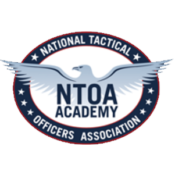Introduction by Lorraine Snyder
Overview
This course is a comprehensive summary of the book “Moral Compass for Law Enforcement Professionals”, a book designed to serve as a moral compass for law enforcement professionals as they navigate the challenges and demands that face them every day. It also provides a review of the values that every law enforcement should hold true to in the performance of their duties.
Learning Objectives
Upon successful completion of this course student should be able to:
- Identify the Cornerstones of the Moral Compass.
- Understand the relationship between Values and Virtues.
- Understand the impact of values on a law enforcement agency.
Instructor: Lorraine Snyder, Director of Certified Credible Leader (CCL) is a Law Enforcement Instructor and has been in the field of public service and law enforcement for twenty-nine years. She began her career at the NC Department of Crime Control and Public Safety serving as a Crime Prevention Specialist and a member of the State Emergency Response Team (SERT). Lorraine was recruited and selected by the NC Department of Justice to develop and implement the state’s first Hate Crime Reporting Curriculum. Recognized nationally for her work, she was chosen to be a speaker at Yale University’s Research Forum on Hate/Bias Crimes. During her time at the Department of Justice, NC Justice Academy, she has developed, revised and taught a variety of courses. Being fluent in Spanish, she has instructed numerous effective Spanish-language learning courses ranging from a Basic Spanish for Law Enforcement, to a more advanced El Curso Para Leer y Practicar Español. Two of her favorite topics have been instructed in an online format; Investigator Ethics and Interrogator Personality Dynamics. She has worked with Alzheimers NC, NC Division of Aging and Adult Services, the NC Attorneys General’s Office – Medicaid Fraud Investigations Unit in offering two courses regarding investigation and protection of North Carolina’s elder and disabled population; Understanding Dementia and Investigating Crime in Long Term Care: Voiceless Victims. For her work in this area, the Southeastern Area Agencies on Aging awarded her the “Outstanding Community Service Award” in 2007, and went on to co-present a lecture at their annual conference in 2012. Lorraine received honors in 2013 by the NC Department of Health and Human Services, Strategic Alliance For Elders (S.A.F.E.) Taskforce and Brookdale Senior Living, Inc. presented her with the “Potter’s Hand: Senior Advocacy Award”. She is honored to have been a requested speaker in state and nationally for the last seven years. The curriculum she co-developed has been requested internationally. She is also a Challenge Course (High and Low Ropes) instructor. Lorraine holds BA in Political Science and Spanish Language, from UNC Greensboro, NC.
Required textbook: “Moral Compass for Law Enforcement Professionals” by Normore, et.al.(2014).
Password =mymoralcompass
The executive team at the International Academy of Public Safety (IAPS) is proud to introduce this practical resource book designed specifically for the field of law enforcement. Replete with personal and professional experiences, proven best practices, and supported by evidence-based research, our book is not intended to be a how-to manual with step-by-step instructions – the lives of those in law enforcement rarely follow a blueprint. Rather, it is styled as a “go-to” moral compass intended to guide the overall thinking for those whose daily duties include serving and protecting the public. Our mission at IAPS is multi-purposed: to provide training that enhances the professionalism, accountability, leadership, and readiness of law enforcement professionals and the agencies they represent; and to do this by supporting value-based credible leadership, ethical practices, positive attitudes, moral courage and honorable actions among law enforcement professionals. At IAPS we provide the material to implement, enrich and reinforce these characteristics in a manner easily delivered to all professionals within the public safety community. This guide is dedicated to the sentinel who serves.
It is our belief that that “every officer is a leader” and as such is expected to be a model of positive influence within the scope of his/her responsibility. We hope that referencing this guide will assist officers in ensuring that their actions reflect their police agency’s mission, vision, philosophy, values, and school of thought.
After much team reflection it seemed appropriate to introduce this book metaphorically as a “compass”. By “compass” we mean a simple instrument that, with its northward facing needle, is a consistent and correct indicator of direction. By adding the word “moral” we hope to evoke a clear picture of those values that will always steer an officer in a virtuous direction. Some may argue that morals are situationally dependent, but as law enforcement officers our “moral compass” should always point in the same direction, no matter which way we turn, no matter who is (or is not) watching.
[scormcloud.training:57892f7571bba]

